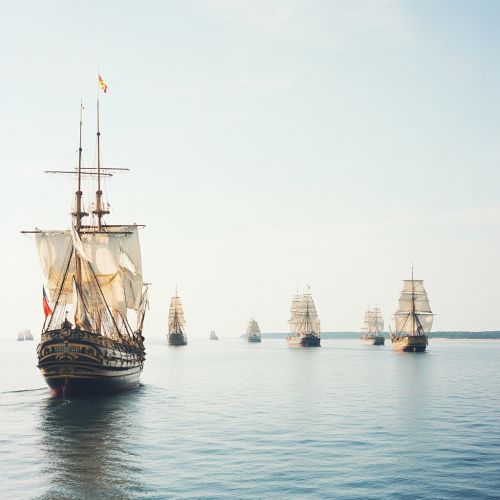European Exploration and Contact
Introduction
The period of European exploration and contact, spanning from the late 15th century to the early 17th century, marked a transformative era in global history. This epoch, often referred to as the Age of Discovery, was characterized by extensive overseas exploration, driven by a combination of economic, political, religious, and technological factors. European powers, primarily Spain and Portugal, initiated a series of expeditions that led to the discovery of new lands, the establishment of trade routes, and profound cultural exchanges. This article delves into the intricate details of this period, examining the motivations, key figures, and the lasting impacts of European exploration and contact.
Motivations for Exploration
The motivations behind European exploration were multifaceted, encompassing economic, religious, and political factors. The desire for spices and other luxury goods from Asia played a significant role, as Europeans sought direct access to these commodities to bypass the Silk Road intermediaries. Additionally, the Reconquista had instilled a sense of religious zeal, prompting explorers to spread Christianity and counter the spread of Islam. Political ambitions also fueled exploration, as emerging nation-states sought to expand their influence and secure new territories.
Technological Advancements
Technological innovations were crucial in enabling European exploration. The development of the caravel, a small, highly maneuverable ship, allowed for longer voyages. Advances in navigation techniques, such as the use of the astrolabe and compass, facilitated more accurate sea travel. The refinement of cartography also played a pivotal role, as improved maps provided explorers with better guidance.
Key Explorers and Expeditions
Christopher Columbus
Christopher Columbus, an Italian navigator sponsored by Spain, embarked on his first voyage in 1492, aiming to find a westward route to Asia. Instead, he reached the Caribbean, initiating European contact with the Americas. Columbus's voyages opened the floodgates for further exploration and colonization by European powers.
Vasco da Gama
Vasco da Gama, a Portuguese explorer, successfully reached India in 1498 by sailing around the southern tip of Africa, known as the Cape of Good Hope. This achievement established a direct maritime route to Asia, enhancing Portugal's trade prospects and influence.
Ferdinand Magellan
Ferdinand Magellan, a Portuguese explorer sailing under the Spanish flag, led the first expedition to circumnavigate the globe from 1519 to 1522. Although Magellan himself did not survive the journey, his expedition proved the vastness of the Earth and the interconnectedness of its oceans.


Impact on Indigenous Populations
The arrival of Europeans had profound effects on indigenous populations across the world. In the Americas, the introduction of diseases such as smallpox and measles decimated native communities. The Columbian Exchange facilitated the transfer of crops, animals, and technologies, but also led to the exploitation and displacement of indigenous peoples.
Economic and Cultural Exchanges
European exploration facilitated significant economic and cultural exchanges. The establishment of trade routes allowed for the flow of goods, ideas, and technologies between continents. The introduction of crops such as potatoes, maize, and tobacco to Europe transformed agricultural practices and diets. Conversely, European goods and technologies, including firearms and metal tools, were introduced to the Americas and other regions.
Colonization and Empire Building
The Age of Discovery laid the groundwork for European colonization and empire building. Spain and Portugal established vast colonial empires in the Americas, Africa, and Asia. The Treaty of Tordesillas in 1494, brokered by the Pope, divided the newly discovered lands between Spain and Portugal, setting the stage for future territorial disputes and colonization efforts by other European powers.
Legacy of European Exploration
The legacy of European exploration is complex and multifaceted. While it led to significant advancements in knowledge and global interconnectedness, it also resulted in the exploitation and subjugation of indigenous populations. The cultural exchanges initiated during this period have had lasting impacts on societies worldwide, shaping modern global dynamics.
